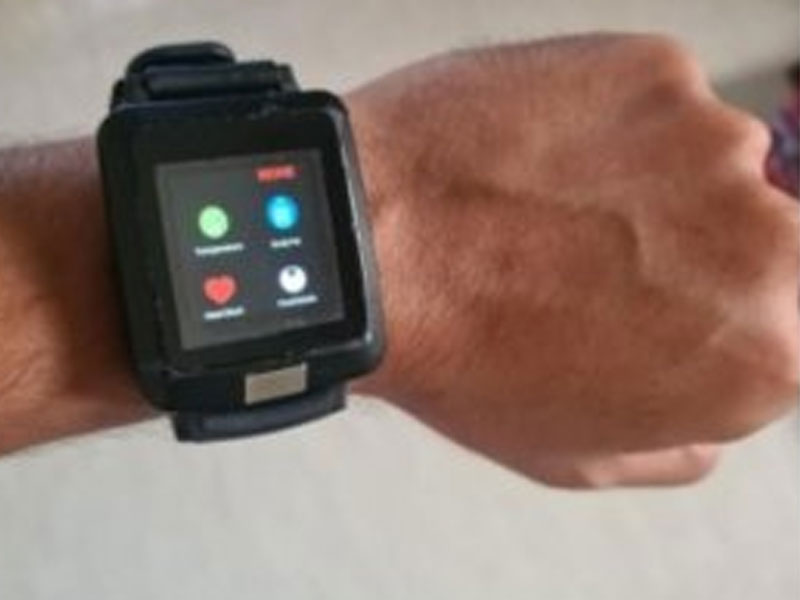This new wearable can image a bodily organ as well as an ultrasound
SOURCE: HTTPS://INTERESTINGENGINEERING.COM/
NOV 16, 2023
Bengaluru startup makes wearable that tracks skin hydration, bone density
SOURCE: DECCANHERALD.COM
SEP 02, 2021

The device looks like a smartwatch, but comes with an additional leg band. Credit: DH Photo
Clinical trials will begin soon in association with Baptist Hospital
A smart wearable that scans your body, tracks skin hydration, extracellular and intracellular water, bone density and other parameters, making it all accessible through a mobile app.
A Bengaluru-based health tech startup, InBioZ has made a working model of this device, arguably for the first time in the country.
The device looks like a smartwatch, but comes with an additional leg band.
“While the smart wearable scans the upper body, the leg band tracks the lower body. The band needs to be worn only for 10-15 seconds about twice a week for its data to be transferred to the wearable via Bluetooth,” explained InBioZ co-founder Souvik Mazumdar to DH.
The system, he says, has already been tested on 150 people in multiple gyms across Bengaluru and Delhi. “Beyond fitness, the device is also linked with parameters critical for tracking kidney ailments and dialysis. We have tied up with a city-based hospital for monitoring dialysis patients.”
The device has been calibrated against standard systems such as the InBody-230 with the sample size of the gym users. Clinical trials will begin soon in association with a city-based hospital.
“The overall accuracy is about 94%. We have also got the necessary safety certifications since it features battery and Bluetooth,” says Mazumdar. InBioZ has also applied for a patent in India.
Conceptualised last year, the smart wearable is likely to be market-ready within the next two months. The related mobile app, InBioZ is already available on Google Play Store and Apple App Store. The device will be upgraded with more features soon. “We are working with scientists in the city on the biophysics and electronics features.”
Integrating healthcare-related technology, wearables have become much more than smartwatches in recent years. From fitness trackers to ECG and blood pressure monitors, the wearables have seen a slew of upgrades.
LATEST NEWS
Augmented Reality
Hi-tech smart glasses connecting rural and remote aged care residents to clinicians
NOV 20, 2023
WHAT'S TRENDING


Data Science
5 Imaginative Data Science Projects That Can Make Your Portfolio Stand Out
OCT 05, 2022

SOURCE: HTTPS://INTERESTINGENGINEERING.COM/
NOV 16, 2023
SOURCE: HTTPS://WWW.AZOSENSORS.COM/NEWS
AUG 28, 2023
SOURCE: WWW.WHATGADGET.NET
JUL 11, 2023
SOURCE: HTTPS://WWW.THEHINDU.COM/SCI-TECH/TECHNOLOGY/INDIAS-WEARABLE-MARKET-GREW-47-IN-2022-BOAT-MAINTAINS-LEAD-REPORT/ARTICLE66493121.ECE
JUN 30, 2023
SOURCE: THECONVERSATION.COM
OCT 16, 2022